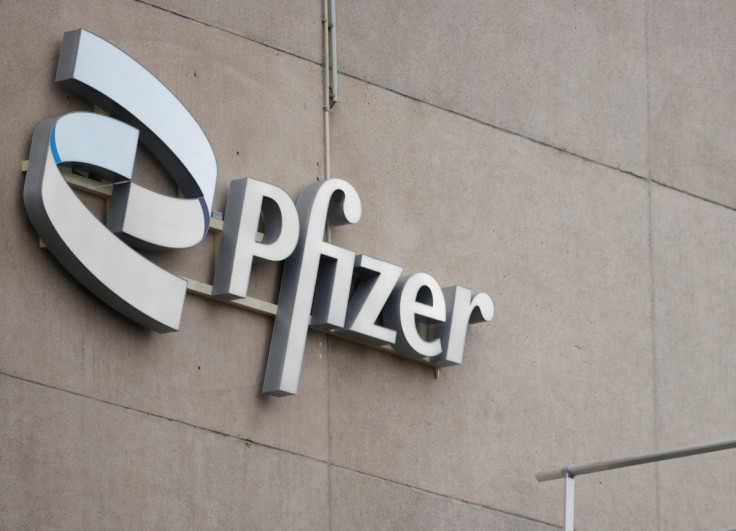Pfizer Eyes Seagen Takeover For More Than $30bn; Full List Of Pandemic-Driven Acquisition Spree
Pfizer, the world's seventh-largest biopharmaceutical company by market capitalization, is reportedly in talks to acquire Seagen. The acquisition, if happens, will be worth billions. Seagen's market value is $30.14 billion, and the buyout is expected to be valued at a higher price.
The biopharma giant appears to be on an acquisition spree. In August last year, Pfizer acquired Global Blood Therapeutics (GBT), which is dedicated to the research, development and delivery of life-changing treatments. The buyout provided hope to underserved patient communities impacted by sickle cell disease (SCD)--a lifelong, inherited blood disorder that affects millions globally, more so in people of African, Middle Eastern and South Asian descent.
GBT is now a fully owned subsidiary of Pfizer after the $5.4 billion acquisition, paid in cash. Below is a list of big-buck buyouts by Pfizer in recent times.
Last month, the company entered an agreement to acquire Abzena's 120,000ft² under-construction biologics manufacturing facility in Sanford, North Carolina. The state-of-the-art biologics drug substance facility will enable the production of biologics drug substances. Armed with added manufacturing capacity, the facility is expected to expedite Pfizer's innovative pipeline.
The company's manufacturing network spans six continents. The largest manufacturing site is in Kalamazoo, Michigan, and spans a total area of 90 acres. Other sites include Massachusetts, Ohio, Kansas, Wisconsin, New York, a second facility in Rochester, Michigan, and two facilities in North Carolina. The company employs nearly 10,000 employees across its manufacturing sites and distributing centers.
Speaking about its acquisition streak, Pfizer added antiviral drugmaker ReViral Ltd to its roster in June 2022. ReViral, a clinical-stage biopharma company, is focused on developing antiviral therapeutics to curb the respiratory syncytial virus (RSV), which majorly affects babies and elders. In 2021, the CDC issued a health advisory across parts of the Southern U.S. about it. On average, 14,000 people aged 65 and above die from the virus annually. The mortality rate among children 5 and younger is reportedly between 100-500.
The company announced the acquisition of Biohaven Pharmaceutical in May last and it was completed later in the year for $11.5 billion in cash. The companies had collaborated in the past on the development of a migraine drug, and Pfizer previously held a small stake in Biohaven. As per the new acquisition deal, ownership of several drugs was transferred to Pfizer for commercialization, with NURTEC ODT being the main highlight.
In March last year, Pfizer completed the acquisition of Arena Pharmaceuticals, a clinical-stage company dedicated to the development of potential therapies for treating several immuno-inflammatory diseases, including ulcerative colitis, Crohn's Disease, and alopecia areata among others. The acquisition cost $6.7 billion, paid in cash.
Pfizer was one of the most active biopharma acquirers in 2021, the other being Sanofi. The company collaborated with Arvinas Inc., to develop and commercialize and investigational oral estrogen receptor protein degrader. Estrogen receptors and their estrogen ligands play a key role in the development and progression of breast cancer.
According to the deal, Pfizer agreed to make a $650 million payment upfront, and a $350 million equity investment in Arvinas. All costs including development and commercialization costs as well as profits were to be equally shared among them.
In April 2021, Pfizer expanded their anti-infectives pipeline by adding Amplyx Pharmaceuticals to its list of owned subsidiaries. Amplyx Pharma is dedicated to the development of life-threatening diseases that impact people with compromised immune systems. The development of Fosmanogepix, an antifungal agent, being developed and investigated by Amplyx as an intravenous ad oral formulation is what piqued Pfizer's interest.
With just three classes of antifungal medications available globally, and mortality rates of 30% to 80% across infection types, a potential new class of therapeutic might prove important for patients and physicians. Fosmanogepix is currently in a Phase 2 trial among patients with invasive candidiasis. Treatment success and survival were achieved in eight of nine ICU patients with Candida auris candidemia.

© Copyright IBTimes 2025. All rights reserved.






















